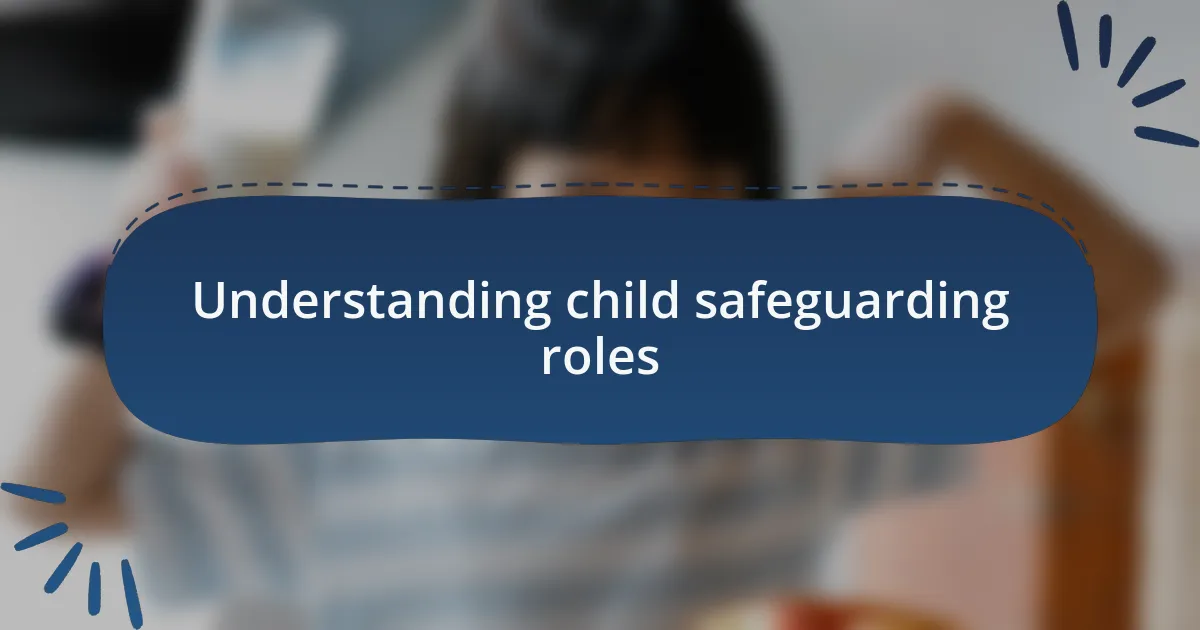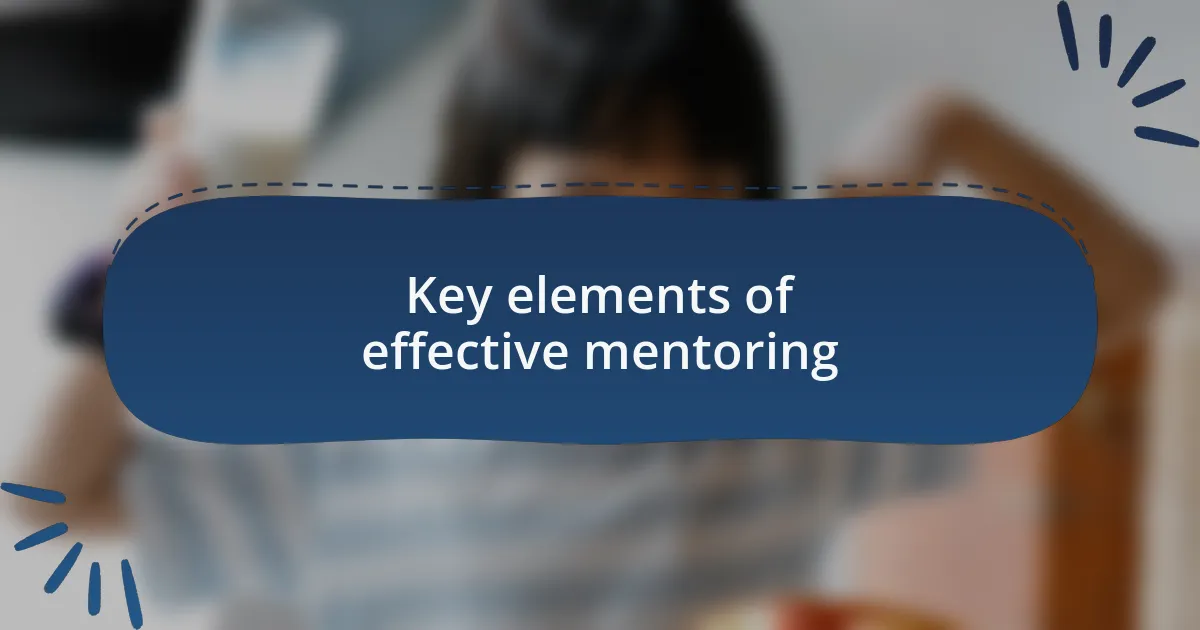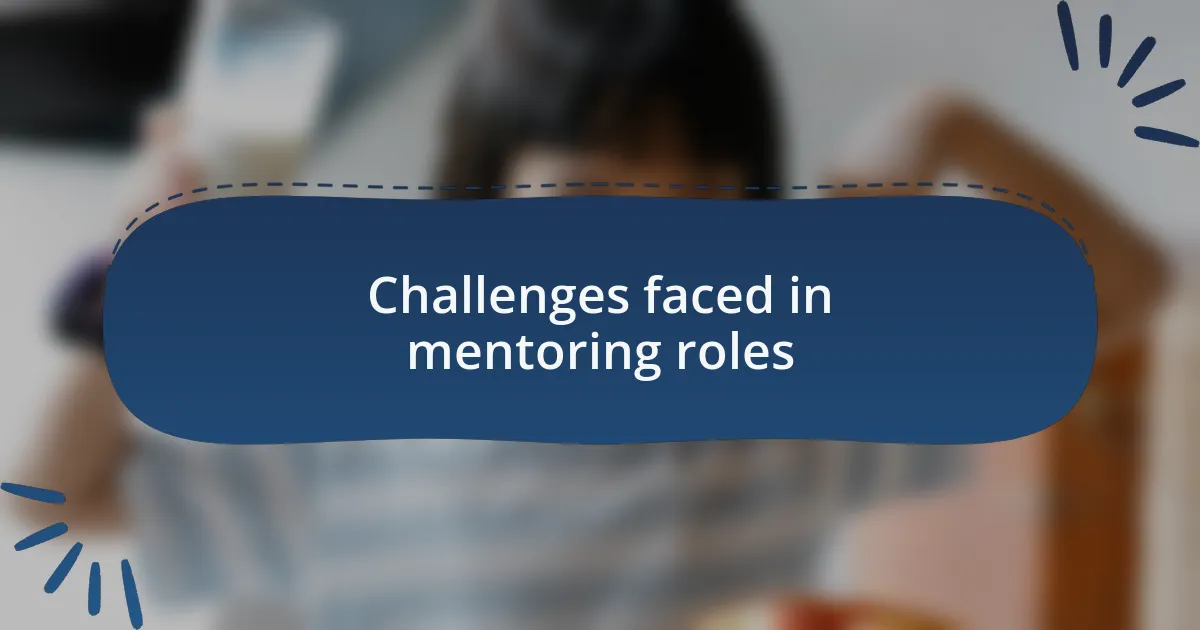Key takeaways:
- Child safeguarding roles emphasize the importance of genuine connections and trust between adults and children.
- Effective mentoring relies on open communication, clear expectations, and mutual respect.
- Challenges in mentoring include misunderstandings, differing expectations, and time constraints that require flexibility and adaptability.

Understanding child safeguarding roles
When I think about child safeguarding roles, I can’t help but recall a time when I was part of a mentoring program. The mentors played a crucial role in guiding us on how to create safe environments for children. It really opened my eyes to the different facets of safeguarding, emphasizing that every adult has a responsibility to protect the young ones in our community.
Understanding child safeguarding roles goes beyond policies and regulations; it’s about genuine human connection. Have you ever considered how trust is built in these relationships? I remember a mentor who shared personal stories about their experiences, making it easier to grasp complex concepts. This personal touch helped everyone feel more involved and responsible for the safety of children.
These roles are collaborative and dynamic, often requiring continuous learning and adaptation. In my experience, discussing real-life scenarios in group settings ignited deeper discussions about safeguarding practices. It’s fascinating to see how diverse perspectives enrich our understanding and willingness to act. How can we ensure that these conversations happen in every setting? It starts with creating safe spaces where everyone feels empowered to share and learn.

Key elements of effective mentoring
Effective mentoring hinges on open communication. I remember a mentorship session where my mentor encouraged me to voice my concerns without fear of judgment. It was refreshing to see how this honesty not only cleared the air but also allowed us to tackle sensitive topics regarding child safeguarding more effectively. How often do we hold back our thoughts because we’re afraid of criticism? Creating a space where ideas can flow freely fosters deeper connections between mentors and protégés.
Another key element is setting clear expectations and goals. Early in my mentoring experience, my mentor and I worked together to outline specific objectives for our sessions. This clarity shaped our focus and provided a roadmap for our discussions. Have you ever thought about how a well-defined plan can enhance the mentoring experience? It certainly helped me to understand not only what was expected of me, but also how I could contribute to the safety of children in practical ways.
Lastly, mutual respect and empathy elevate any mentoring relationship. I recall a moment when my mentor took the time to understand my background, which helped frame our conversations. It underscored the importance of seeing each other as partners in the learning process. When mentors show genuine empathy, it invites protégés to engage at a deeper level. How can we create more empathic mentoring relationships in our field? By actively listening and valuing each other’s perspectives, we cultivate a strong foundation for growth and understanding.

Challenges faced in mentoring roles
Mentoring can often feel like walking a tightrope, especially when misunderstandings arise. I once faced a situation where I misinterpreted a mentee’s needs, leading to frustration on both sides. It was a tough lesson in communication and reminded me how easily a mentoring relationship can skew off course without clear dialogue. Have you ever felt that gap widen when assumptions take the place of conversations?
Another significant challenge is managing differing expectations. I remember guiding a newer mentor who was eager to share all their knowledge but struggled to recognize their mentee’s readiness to absorb it. This mismatch created tension, as the mentee felt overwhelmed instead of empowered. It made me wonder—how do we strike a balance between enthusiasm and the mentee’s actual capacity for growth?
Lastly, time constraints often loom large over mentoring relationships. Balancing a busy schedule can be daunting, and I’ve experienced the nagging guilt of missing a mentoring session due to work commitments. It has taught me that flexibility is vital; sometimes, a quick check-in can sustain the connection when longer sessions aren’t possible. How can we prioritize these relationships when time seems perpetually scarce?